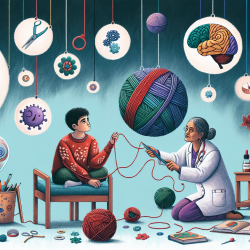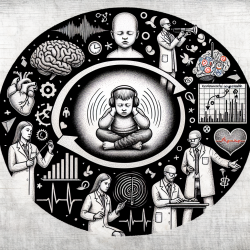Central Auditory Processing Disorders (CAPD) present a unique challenge in the field of special education and therapy. Recent advances in neurobiology research offer groundbreaking insights that can significantly enhance therapeutic outcomes for individuals with CAPD. Understanding the neurobiological underpinnings of these disorders not only illuminates the complexities of auditory processing but also paves the way for more effective intervention strategies.
One of the key findings from neurobiology relevant to CAPD is the identification of specific neural mechanisms and pathways involved in auditory processing. Research has shown that the central auditory nervous system is incredibly intricate, with various areas of the brain playing distinct roles in decoding and interpreting sounds. This complexity is crucial in understanding CAPD, as disruptions in these pathways can lead to the diverse symptoms observed in individuals with these disorders.
For practitioners working with CAPD, incorporating neurobiological insights into therapy can significantly improve practice. For instance, understanding the specific areas of the brain affected in an individual with CAPD can help tailor therapeutic activities to strengthen these regions. Techniques such as auditory training exercises, which are designed to enhance the brain's ability to process and interpret sounds, can be more effectively implemented with a deeper understanding of the underlying neurobiology.
Moreover, this research highlights the importance of early detection and intervention. Neuroplasticity, or the brain's ability to reorganize and form new neural connections, plays a critical role in auditory processing. Interventions that capitalize on neuroplasticity have the potential to yield significant improvements in auditory processing abilities. This underscores the need for early assessment and intervention in children suspected of having CAPD, to harness the brain's natural plasticity for optimal therapeutic outcomes.
Another promising area of research is the use of technology in therapy for CAPD. Neurobiological studies have led to the development of sophisticated auditory training software and apps that can be customized to the needs of the individual. These tools can provide targeted auditory exercises that directly address the neural deficits associated with CAPD, offering a personalized approach to therapy.
In conclusion, neurobiology research offers valuable insights that can enhance therapeutic strategies for CAPD. By integrating these findings into practice, therapists and educators can provide more effective, evidence-based interventions that address the root causes of auditory processing challenges. This not only improves outcomes for individuals with CAPD but also contributes to a deeper understanding of the complexities of auditory processing and its impact on learning and communication.
For those interested in delving deeper into the neurobiology of CAPD and its implications for therapy, the research article titled "Neurobiology Relevant to Some Central Auditory Processing Disorders" provides a comprehensive overview. To read the original research paper, please follow this link: Neurobiology Relevant to Some Central Auditory Processing Disorders.










